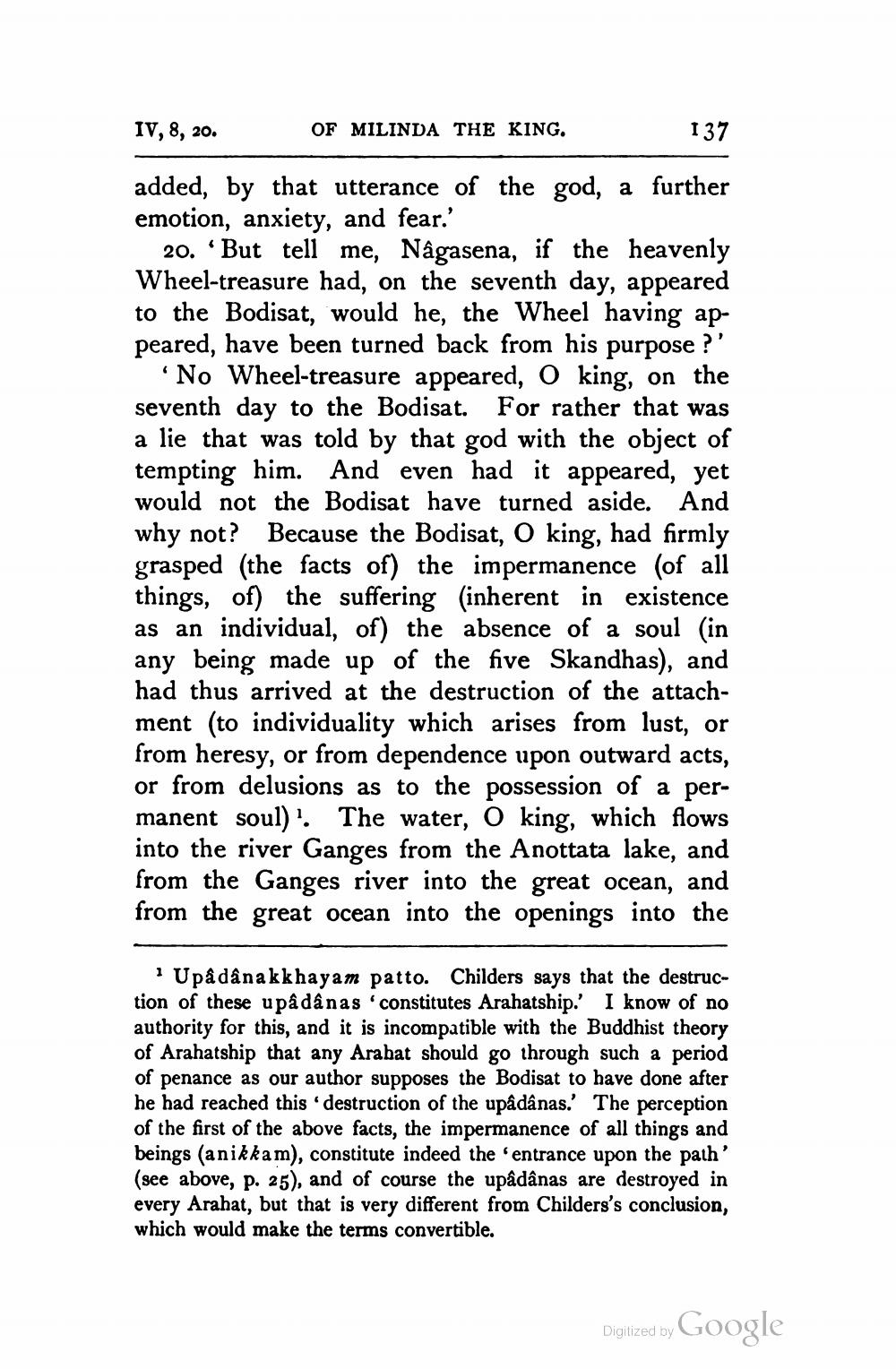________________
IV, 8, 20.
OF MILINDA THE KING.
137
added, by that utterance of the god, a further emotion, anxiety, and fear.'
20. 'But tell me, Nâgasena, if the heavenly Wheel-treasure had, on the seventh day, appeared to the Bodisat, would he, the Wheel having appeared, have been turned back from his purpose ?'
No Wheel-treasure appeared, 0 king, on the seventh day to the Bodisat. For rather that was a lie that was told by that god with the object of tempting him. And even had it appeared, yet would not the Bodisat have turned aside. And why not? Because the Bodisat, О king, had firmly grasped (the facts of) the impermanence (of all things, of) the suffering (inherent in existence as an individual, of) the absence of a soul (in any being made up of the five Skandhas), and had thus arrived at the destruction of the attachment (to individuality which arises from lust, or from heresy, or from dependence upon outward acts, or from delusions as to the possession of a permanent soul)". The water, O king, which flows into the river Ganges from the Anottata lake, and from the Ganges river into the great ocean, and from the great ocean into the openings into the
Upå dana kk hayam patto. Childers says that the destruction of these upadanas 'constitutes Arahatship.' I know of no authority for this, and it is incompatible with the Buddhist theory of Arahatship that any Arabat should go through such a period of penance as our author supposes the Bodisat to have done after he had reached this destruction of the upâdânas.' The perception of the first of the above facts, the impermanence of all things and beings anikkam), constitute indeed the entrance upon the path' (see above, p. 25), and of course the upâdanas are destroyed in every Arahat, but that is very different from Childers's conclusion, which would make the terms convertible.
Digitized by Google




